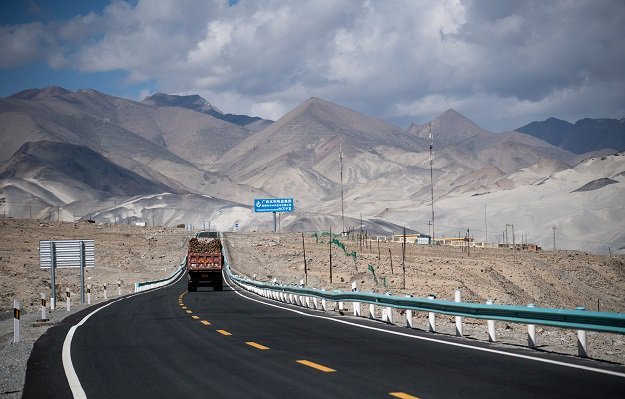CPEC Development Hindered by Pakistan's Economic Circumstances
Islamabad: Yo Bo, the Chairman of China Overseas Port Holding Company (COPHC), has emphasized that Pakistan's economic situation has been the primary reason for the delay in the development of the China-Pakistan Economic Corridor (CPEC).

Islamabad: Yo Bo, the Chairman of China Overseas Port Holding Company (COPHC), has emphasized that Pakistan's economic situation has been the primary reason for the delay in the development of the China-Pakistan Economic Corridor (CPEC).
During a meeting at the Lahore Chamber of Commerce and Industry (LCCI), Yo shed light on the significant progress made in Gwadar under the umbrella of CPEC.
He highlighted the importance of Gwadar, considering it as the central axis of CPEC. The initial phase of Gwadar's port and urban development, along with the establishment of the Gwadar Free Zone, has been completed.
His comments underscored the transformation of Gwadar from a small village into a modern city, equipped with advanced technology.
China has made substantial investments in various aspects of Gwadar's growth, including construction, airport infrastructure, and healthcare facilities.
Regarding the Gwadar Free Zone, which was brought under the management of the Free Zone Company in 2018, its first phase has already been established on a 25-hectare area near the port. This zone has attracted six companies.
The North Free Zone, covering a vast area of 900 hectares, has been designated for industrial and warehousing purposes. It will contribute to processing raw materials for export.
Chairman Yo discussed the economic disparity in Balochistan, emphasizing the untapped potential of the region despite its abundant natural resources. He noted that Gwadar Port is fully operational and equipped to handle imports and exports.
He provided details about the operational status of Gwadar Port, its capacity for handling cargo, and the plans for the full-scale operation of Gwadar International Airport.
Additionally, he mentioned the port's role in facilitating barter trade with Iran, Afghanistan, and Russia, highlighting its strategic advantages.
The incentives offered to Chinese companies in free zones, along with the potential for mutually beneficial partnerships between Pakistani and Chinese businesses, were recurring themes in Yo's statements.
An LCCI delegation received an invitation to visit Gwadar, showcasing China's enthusiasm for fostering collaborative ventures and investments. This eagerness extends not only within Gwadar's boundaries but also beyond, demonstrating its regional impact.
During the event, LCCI President Kashif Anwar announced that a business delegation would soon visit Gwadar. He acknowledged Gwadar's role in enhancing regional connectivity through CPEC, benefiting China, Pakistan, and neighboring countries such as Iran, Afghanistan, and the Central Asian Republics.
Anwar viewed CPEC as a foundational element in Pakistan's industrial and economic revitalization.
Despite the progress made since CPEC's launch in 2015, Anwar acknowledged that there is much more potential to be realized. The eight-year journey has seen the construction of extensive infrastructure, from road networks to power plants and free zones.
He emphasized the need to fully unlock CPEC's economic potential and looked toward Chinese investors for guidance.








